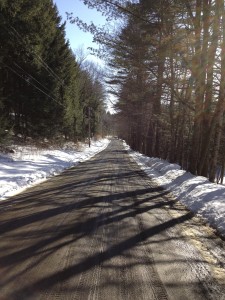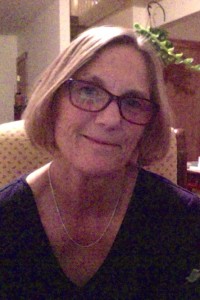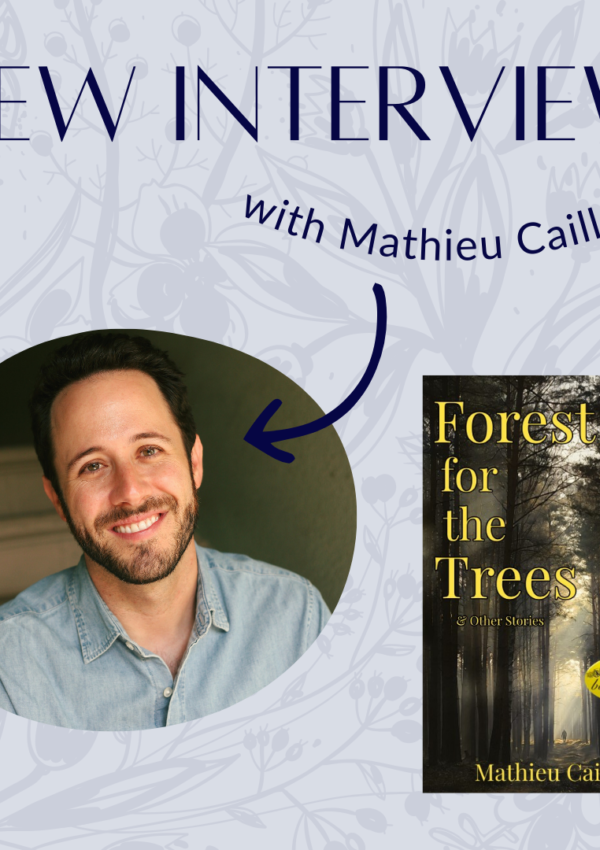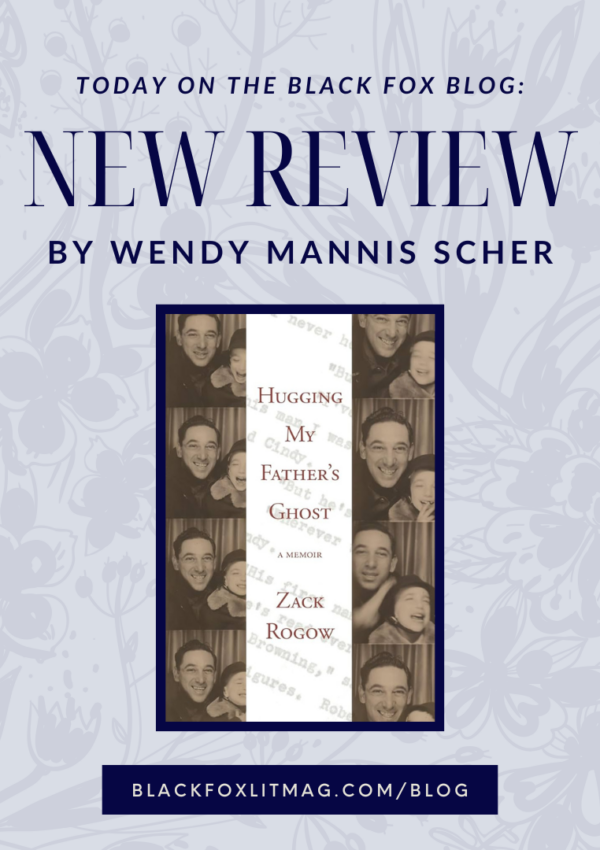 New Hampshire is bipolar this spring. The weather swings from darkly grim to bright. An early melt floods the frosty earth with enough warmth in March to coax tulips and daffodils up through the soil, then sudden cold drops the temperature to near zero in April and throws down snow. Tulip leaves droop and curl back toward the plants’ roots, tricked, cheated, devoid of buds. A lone daffodil has bloomed beside one of the stones I set into the earth last year to divert run-off, its stem broken from an assault of wind. I clip the skinny stem from the stalk and put it in a vase. It is the only flower in my house.
New Hampshire is bipolar this spring. The weather swings from darkly grim to bright. An early melt floods the frosty earth with enough warmth in March to coax tulips and daffodils up through the soil, then sudden cold drops the temperature to near zero in April and throws down snow. Tulip leaves droop and curl back toward the plants’ roots, tricked, cheated, devoid of buds. A lone daffodil has bloomed beside one of the stones I set into the earth last year to divert run-off, its stem broken from an assault of wind. I clip the skinny stem from the stalk and put it in a vase. It is the only flower in my house.
I’m the only person in my house. Within my brain, a single aneurysm blooms–a tiny balloon of blood on the ophthalmic artery that, because of its size and location, balances at the tip of possible rupture. Rupture means two things: catastrophic stroke or death.
Nine days from now a neurosurgeon and radiologists will conduct an open head coiling procedure, not to remove the aneurysm but to block its rupture, with a catheter and platinum wire delivered into the brain by way of the femoral artery. My neurosurgeon assures me that coiling is less risky than closed head clipping. The word I hear is risky.
In the darkening living room I begin to write my observations of what it is to contemplate leaving this earth. Too soon it is midnight.
Eight days.
Late afternoon. I walk the dirt road that runs in front of my house. It’s unseasonably cold. Shadows of young trees flatten across the road. The limbs, black and vivid against the ground, divide and send out branches. I imagine globes of roiling, high-pressure blood ticking at intersections.
Back in the house, I sit on my bed and write beneath a white down quilt and a purple mohair throw, hand knit in Scotland. My daughter vacuums downstairs and scrubs the kitchen as though life depends on cleanliness. We go grocery shopping. Images of blood vessels rise in my mind. I feel as though I might fall into the shelves of cans and boxes.
Evening comes. The field beside the house fades into a watery darkness. My black cat licks a paw, pricks up her ears at insect sounds. My girl and I sit and listen. There’s nothing I’d rather do.
Seven days.
I’m alone today, trying to read through the distraction of next week. Novels and collections of poetry lean together in cases throughout the house. They are stacked on tables and on the floor beside my bed. Looking at them, I feel a knife swipe of urgency. If risky manifests, I won’t read these books, won’t finish the ones in process or buy the ones I’ve marked on Goodreads for later this year.
Whether I live through surgery or not, at this moment I’m stuck at the brink of death’s dispassionate unfairness, and I’m indignant. Forget stories about people who accept with grace the threat of leaving this world.
Six days.
My perennial beds are patched with spring grass. It invades sprouts of thyme and iris, even the stiff gray stalks of winter-killed lavender and sage. The soil is too dry for spring growth, clay-ridden. In the broken-down blue barn, where I sometimes find old horseshoes and keep them for luck, my garden tools hang from rusty nails. I’m lifting a rake from a nail when I see a groundhog bolt out of sight behind the oil tank. I see new rat prints on the dusty steps that lead to the bat-infested second floor, a place only a fool or an exterminator would go. I yank the rake down and stomp out the door to the driveway.
What God inhabits his kingdom with creatures who scurry and hide, creep up stairs, hang from beams in black rooms?
Today I’m a reckless gardener. What’s the point of all this mess anyway? I dig at weeds and damage perfectly healthy perennial roots. I pull out rocks with my bare hands, throw them to the lawn, and go back into the house,. I shower and get into bed with a yellow legal pad and a gel pen. Today, writing is a door into my own interior darkness.
Five days.
Tonight I see a dear friend who lives many states away. We meet on a Google hangout and toast one another by tipping our wine glasses to our separate computer screens. We talk about our writing and remember a story I wrote after reading Hemingway’s “Hills Like White Elephants,” how the style of my writing reminded her of his.
“I still haven’t figured out the ending,” I say.
“You should probably read more stories and notice the different ways they end.”
Strategies for getting out of the houses we build with sentences and nail together with punctuation. We don’t talk aneurysms. We blow kisses and click back to distance.
Four days.
I try not to tell the people I love how hard it is to fight mental pictures of vessels, of blood spilling through my brain–especially if I’m their mother, their sister, their aunt, their friend. I imagine reaching back from the absolute to comfort them.
Three days.
Just months ago, I volunteered for Hillary Clinton’s presidential primary campaign in New Hampshire. I met her at a gathering of volunteers the Monday after her appearance on Saturday Night Live, during which she sang “Lean on Me” with impersonator Kate McKinnon. Our group sang “Lean on Me” (with heart and very poorly) when Secretary Clinton came into the room. Someone took a picture of me standing with her, talking and smiling. It was a vivid moment for me, one that seems distant today, as the candidates continue to compete for delegates far away from here.
The day after my surgery, five states will hold primary elections that are likely to decide which candidate will win the Democratic Party’s nomination and go on, I hope, to win the general election.
Where will I be when the first woman ever to be president of the United States takes office? I am a lifelong feminist who has actually met Gloria Steinem and admired her writing for decades. Where will I be?
Two days.
My niece sends me coloring books, a box of bright pencils, two bars of dark chocolate. Her mother—my sister—is staying with me. We color through the evening in the lovely peacefulness that surrounds my country home. We eat the brownies my sister baked.
I’m old enough to remember The Smothers’ Brothers Comedy Hour, a controversial Vietnam War era television show. One of their silly songs comes to me, as I eat and color flowers blue.
What ever happened to time?
It doesn’t come around anymore.
The very last time I saw it,
it was whistling out the door.
My sister is older than I am. She is the only person left in the world whom I have known since my birth. We’ve colored together since childhood. In time, our fingers will gnarl. We’ll stoop. Our children will hand us canes. One day, when we’re outrageously old, we’ll whistle out the door.
One day.
My daughter, here for the night, watches me pace and wander through the house. I’m deep inside my head, repeatedly stunned that tomorrow is the day. Outside snow falls on newly sprouted day lilies. Through the kitchen window I watch the whiteness flatten across the driveway—a blank white page.
I haven’t written every day this past year, haven’t submitted regularly to journals. Even with the help of Duotrope, my writing habits have been haphazard. Out in the night world, people pray for me. All the right words rise to the cosmos.
Morning.
We’re up at five, though we don’t leave for the hospital until eight. It’s twenty-nine degrees outside. I shiver, turn up the heat, and wrap up in wool blanket on the couch.
“There’s a movie with music I want to hear,” I tell my daughter. “Can you look for it on Netflix?”
Yankee Doodle Dandy, the story of George M. Cohan, whose songs my father loved and taught me when I was a child. I sing along with “Forty-Five Minutes from Broadway” and “Over There,” the song for which Franklin Roosevelt awarded Cohan the Congressional Gold Medal. I tell her about this, but she’s edgy and goes out to start the car.
I stand before framed photographs of my grandmother, my mother, my father, and my brother, where I’ve hung them together on the living room wall. All four people are young and beautiful in the pictures, and all four have died, three of them way too young. I stare hardest at my parents. “I miss you,” I say. “But I’m not ready.”
I leave this writing in the living room, saved to the desktop of my computer.
Afternoon.
A nurse coaxes me back from the odd, unconscious state induced by general anesthesia. I resist, as though I’m waiting for something. Through my closed eyes, I see an image rise and clarify. It is my parents, looking as they do in their photographs. Her red lips and dark curls. His Army Air Corp uniform. Their eyes press me up from the brink of the dark to a flood of light.
END
 Elizabeth Jane Whittington is a born writer who has submitted work to anyone who could read since she was eight. She has published work in online and print journals such as Crack the Spine Literary Magazine, Black Fox Literary Magazine, After the Pause, Margie, and Kalliope. She was a finalist in Glimmer Train’s Fiction Open. She is the mother of two grown children and lives in Cornish, New Hampshire, home to the longest two-span covered bridge in the world.
Elizabeth Jane Whittington is a born writer who has submitted work to anyone who could read since she was eight. She has published work in online and print journals such as Crack the Spine Literary Magazine, Black Fox Literary Magazine, After the Pause, Margie, and Kalliope. She was a finalist in Glimmer Train’s Fiction Open. She is the mother of two grown children and lives in Cornish, New Hampshire, home to the longest two-span covered bridge in the world.
Manager: Upper Valley Writers Facebook page at https://www.facebook.com/uppervalleywriters/
Twitter: Jane Whittington @OneMoreStar48




Wow! Gripping and full of life. Thank you, Jane.
Dear Jane,
I had no idea you were so worried – you posted calmness. I knew I would be spastic with worry. So glad you came through so well. Beautiful writing.
Love you always,
Celie
Thank you, Mary and Celie. So cool to have comments on my post!
Hauntingly beautiful, Elizabeth. I’m glad to have more time with you. KH
Amazing to read your story as it was happening. I have an appreciation for both your talent as a writer and as a person who was able to live in the moment and and reflect on the past while facing the uncertainty of the future. You never cease to amaze me.
Wow! Thanks for sharing. I am so glad you chose to share this with me and that the ending to the story was as we all hoped for. This made me think so much and will for days to come.
You are a talented writer and a courageous person. Thank you for sharing your journey with us.
Dear Elizabeth,
I really missed you at our EFG meetings this year. Where is she? I miss her comments and big words!
I missed your reflections on our work – almost as powerful as your reflections on your life.
I am sorry that I didn’t reach out to you then to let you know that you were missed. I could have said extra prayers during your journey.
I hope this means we can torment Lisa next year during EFG!
Elizabeth, your writing is so beautiful and powerful. You have been through an amazing journey. I am so appreciative that you chose to share it and I am very happy that things worked out well for you. I hope I get to be with you again next year in EFG!
I’m so sorry you had to go through this experience, but I truly appreciate your openness. I’m sure your willingness to share will provide encouragement to others in similar situations.
Side note – I had no idea that you met Gloria Steinem. That is AMAZING!
The ending gave me chills! Beautifully written. It captures the anxiety leading up to an event that forced you to face your mortality in an honest and image-filled way. Thank you for letting Lisa share the link with us!
My Precious. I can’t speak.
This is written with bright clarity, honesty, and intensity. It puts me right there with you in the experience. Because of my major de-bulking cancer operation, I can even more easily relate. I was anxious, naturally, but to calm myself, I thought, “If I make it, fine. If not, it won’t be my problem, will it?” Your tender descriptions of the natural environment of your world illuminate the sharpness and appreciation with which we view our surroundings when we become aware that our connection with them could cease at any time. It is moving.